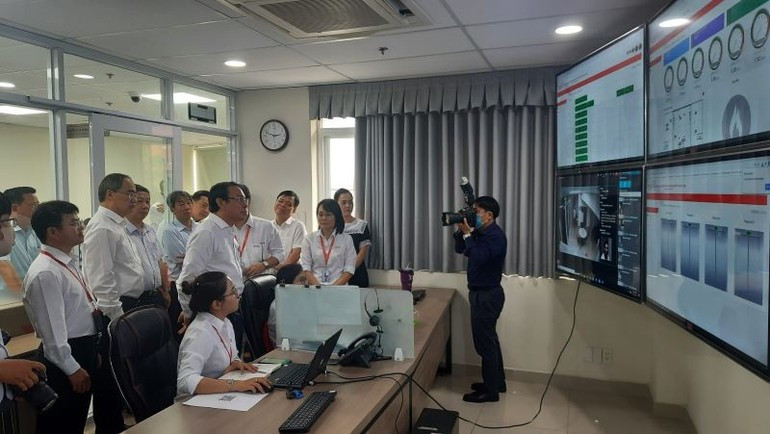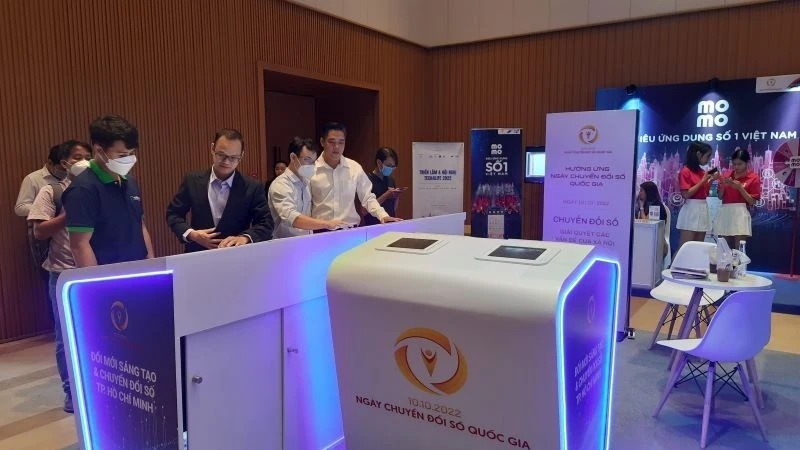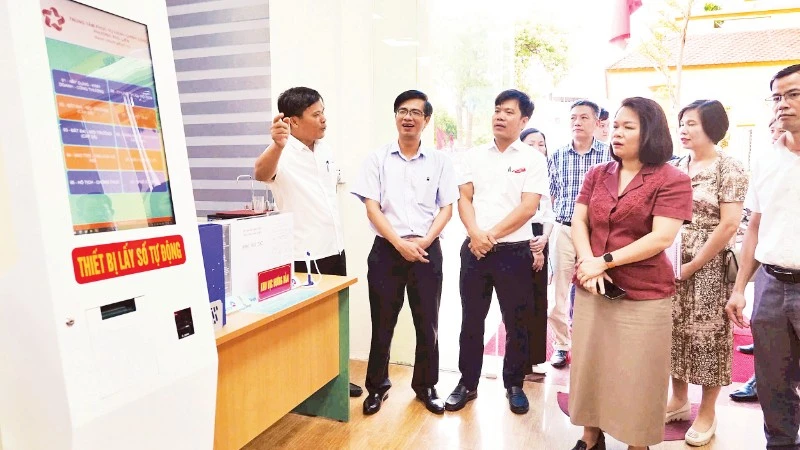Ho Chi Minh City targets the digital economy to account for 25% of its GRDP by 2025, and by 2030 strives to be among the top two localities nationwide in digital government and digital economy.
Digital Economy to Account for 40% of GRDP
By 2030, the city aims for its digital economy to contribute 40% of GRDP, exceeding the national target by 5–10%. According to Vo Thi Trung Trinh, Director of the Ho Chi Minh City Digital Transformation Centre, the city is currently focusing on building three key data groups: population data; financial and enterprise data; and land and urban data.
At the same time, the city is expanding digital infrastructure and strengthening information security; implementing large-scale digital information platforms; building an ecosystem for innovation and creativity; and rolling out artificial intelligence (AI) and open data programmes. These are fundamental platforms to drive breakthroughs in the city’s digital economy.

Since 2021, the city has implemented numerous models and ideas for innovative solutions, applying information technology to administrative reform for the benefit of citizens and enterprises.
Specifically, the city continues to implement level-3 and level-4 online public services; provide information to citizens through the Ho Chi Minh City Public Service Portal; and upgrade the 1022 hotline into a unified, multi-sector, multi-field information gateway that serves as a multi-channel communication platform between citizens and all levels of government.
In addition, the city has applied information technology, especially artificial intelligence, to public administrative reform to better serve citizens and businesses.
According to Lam Dinh Thang, Director of the Ho Chi Minh City Department of Science and Technology, the city’s digital transformation has been accelerating, expanding both in scale and depth across three pillars: digital government, digital economy, and digital society.
Among these, digital government has received strong and decisive leadership attention, as successful digital transformation in government will enhance administrative efficiency, improve services for citizens and businesses, and promote faster socio-economic growth.
Ho Chi Minh City also faces multiple challenges, such as limited IT human resources in both quantity and quality, a lack of synchronised digital infrastructure investment, and inadequate awareness of digital transformation among certain agencies and enterprises.
Alongside the achievements, Ho Chi Minh City continues to face difficulties and challenges, including limited information technology human resources in both quantity and quality, underdeveloped digital infrastructure, and low awareness of digital transformation among some agencies and businesses.
Experts have observed that the explosion of technology today is rapidly changing work methods and environments—and that many current jobs may disappear in the near future.
Seven Pillars for Promoting Digital Transformation
To make digital transformation a driving force for socio-economic development, Ho Chi Minh City must focus on seven pillars: mastering data; developing secure and flexible infrastructure; nurturing a technologically proficient workforce; encouraging ecosystem participation; creating intelligent work processes; unifying citizen and business experiences through digital technology; and innovating service delivery models.

According to Nguyen Truc Van, Director of the Centre for Socio-Economic Simulation and Forecasting under the Ho Chi Minh City Institute for Development Studies, the city must strengthen its economic competitiveness through digitalisation.
This includes creating favourable conditions for businesses of all sizes to adopt, access, and efficiently use digital technologies; building a legal framework suited to the digital economy; encouraging innovative business models; developing digital industrial clusters; and promoting start-up activities.
Following the administrative merger, Ho Chi Minh City now has the largest number of enterprises in the country, including over 7,000 information and communications technology companies. Most businesses in the city are aware of the importance of digital transformation and have proactively integrated digital transformation goals into their development strategies. This is a positive sign that local enterprises are ready for a breakthrough in digital transformation.
Dao Thi Hong Le, Director of Tokyo Tech Lab Viet Nam, stated that digital transformation is no longer a trend but an urgent necessity for every enterprise. Therefore, digital solution providers must deliver platforms that are not only user-friendly and highly customisable but also efficient and secure.
Small and medium-sized enterprises often face challenges in selecting the right digital platform, as choosing an unsuitable consultant can lead to wasted time and financial loss.
Phi Anh Tuan, Ho Chi Minh City Digital Transformation Consulting and Support Centre.
Meanwhile, Phi Anh Tuan, Head of the Enterprise Digital Transformation Division at the Ho Chi Minh City Digital Transformation Consulting and Support Centre (DXCenter), noted that small and medium-sized enterprises frequently struggle to select the right digital platform. Choosing the wrong consulting partner may result in wasted time and money.
Therefore, enterprises need to choose solutions with high integration capability and practical applicability—suitable for all business scales. Enterprises that lack sufficient resources for a comprehensive digital transformation should adopt a step-by-step approach, expanding in line with their development progress.
By 2030, Ho Chi Minh City aims to complete its smart city data platform to serve the development of digital government, digital economy, and digital society; reduce administrative procedures by 40%; and increase creative services by 40%. The city also seeks to achieve universal fibre-optic broadband Internet access and 5G mobile network coverage across the entire urban area.
















